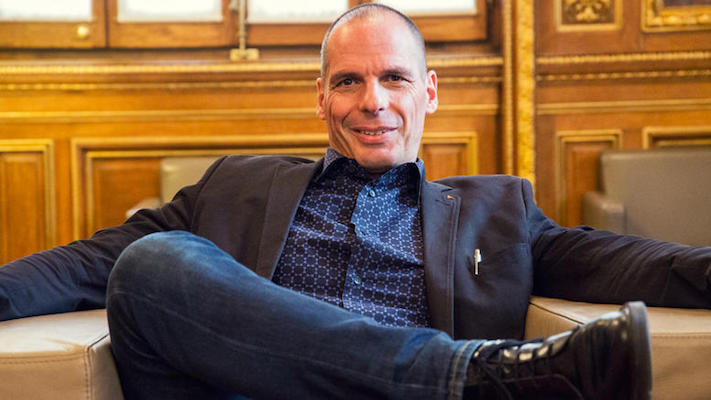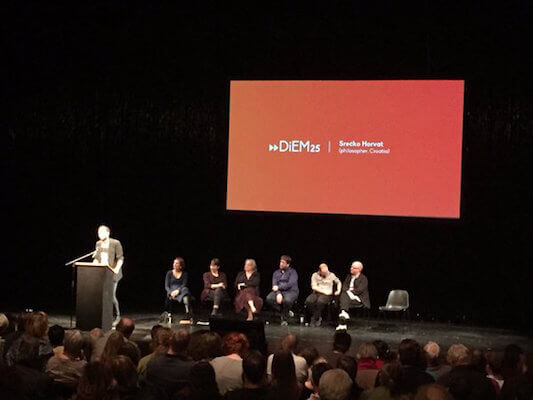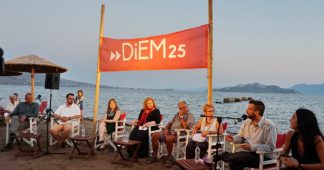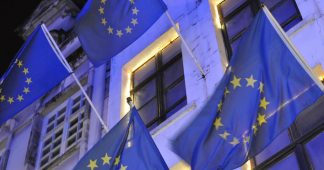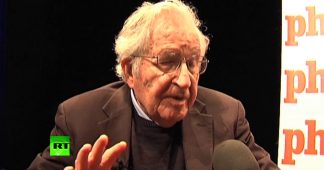DDP note: Wayne Hall, who is a friend of the Delphi Initiative and also a centrally registered member of Diem25 has addressed us the following article. We found it quite interesting for our readers, so we publish it.
We bear the responsibility for the title. As he explained to us, it was posted at Diem’s Official Discussion Forum but removed by Moderators after 20 minutes without explanation.
The article:
DiEM25
The pan-European citizens’ movement DiEM25, launched last February in Berlin by Yanis Varoufakis and his collaborators is now, in the wake of the Brexit vote, initiating a campaign to make it a stronger presence on the political scene in Britain. Varoufakis’ key collaborator Brian Eno has set the tone for this campaign with a contribution of impressive clarity vis à vis the aspects of the present situation that it is aware of or chooses to examine:
Does this launch represent the beginnings of a campaign to found a new British political party?
Some DiEM25 members in Nottingham have raised issues that are very pertinent to this question. What do they say?
“Today we are emailing you to express a concern about the current path DiEM25 has taken which has been raised and discussed in our DSC (DiEM spontaneous collective, DiEM’s local action groups): the increasing diffuseness of DiEM25’s core message and lack of focus on the democratisation of Europe.
As we understood, the key objective of DiEM25 is to gather public support for a more democratic and transparent institutional set-up and political culture in Europe, as laid out in our manifesto. We argue that all discussions, external communication and political actions should serve, at least more or less directly, this key objective.
We agree that the challenges outlined for example in the Progressive Agenda for Europe are very important issues that urgently need to be dealt with and are worth fighting for. However, DiEM25’s angle should be how a more democratic and transparent Europe can enable these policy solutions.
Discussions about social housing, basic income, about putting migrants at the “heart of political change in Europe” or about actions against climate change are surely important and there is nothing wrong with DiEM25 members being active in this fields. However, we fear that our movement will lose its focus if it as a whole starts to deal with issues not sufficiently linked to our key objective of democratisation and transparency. We acknowledge that policy challenges like the examples given above can best be solved in a more democratic Europe. Therefore, our suggestion is to address these challenges not as separate issues but
from our core angle – democratisation and transparency. Detailed policy discussions not directly linked to our core angle should better be made under the roof of movements specialised in those areas.
Why is a clear thematic focus so important? Ultimately, we as members of DiEM25 have to decide whether we want to form a political party. In that case, proposing policy solutions to a broad number of topics would indeed be necessary. In our opinion, DiEM25 is and should be a political pressure group rather than a political party, at least for the time being. Political pressure groups influence the political discourse by making their voice heard very loudly. To do so, a clear key message and objective is indispensable. Another characteristic of a political pressure group is the cross-party alignment – a core principle laid out in DiEM25’s manifesto.
To reach our goal it is important to gain the widest possible legitimacy among Europe’s citizens. Democracy and Transparency are not only the main objectives laid out in DiEM25’s manifesto, they are also the objectives with the potential to find the largest support across the political spectrum.
We ask each DSC to discuss this topic – Should DiEM25 focus more strongly on its core principles democracy and transparency? We would like DiEM25 as a whole to know what it wants to be and how to make the best use of our resources.
Carpe DiEM
the DSC Nottingham
After resigning as Finance Minister of Greece Yanis Varoufakis very explicitly rejected proposals to start his pan-European citizens’ initiative from Greece, opting instead to found DiEM25 in Berlin. There was a logic to this, and not only a personal logic reflecting Varoufakis’ and his parental family’s personal experience of Germany as a democratic (or at least more democratic) refuge from Greece’s military junta. Germany is and was the economic heart of the European Union. DiEM25 was founded in the wake of the confrontation between SYRIZA and the Troika over Greece’s alleged indebtedness. None of any of that has gone away, or even looks like being on the way to resolution, but Brexit and the advent of Donald Trump to the American presidency have moved to centre stage, eclipsing (particularly for non-Greeks) the problems of Greece.
The original DiEM Aegina DSC attached great importance to the cross-party alignment outlined in DiEM25’s manifesto. It was precisely because of lack of confidence that this principle would be adhered to that half of the group chose not to become registered members but nevertheless participated actively in all of the group’s initiatives, which included a public function on the Greek debt, another public function on the problems of European integration, the hosting of DiEM25’s international meeting in Aegina in the summer, in which Yanis Varoufakis participated, and in preparations for a public meeting on CETA, which eventually had to be organized by a local citizens’ group.
Active involvement of non-registered members is permissible under DiEM25’s statutes as long as there is unanimous agreement of registered members that it should be permitted. When this unanimity was broken, the original DIEM25 Aegina DSU inevitably dissolved.
It would be preferable for “Democracy and Transparency” to remain at the heart of DiEM’s mission and that DiEM25 should not seek to become a political party, even in Britain, which appears, after Brexit, to have even more need for the foundation of a new political party than do other EU member states. Nevertheless, if DiEM25 members in the United Kingdom should choose to invest their energies in establishing a new political party, this could be acceptable, if other elements were present in DiEM25 policies.
But a concern with democracy that is based on reproduction of mainstream narratives and mainstream bipolar scenarios, i.e. on attitudes that are symptoms of the prevailing lack of transparency, is no way to develop an alternative to rising right-wing nationalism. To be frank, a democracy based on reproduction of corrupt mainstream narratives is no democracy at all.
This is particularly the case when the right-wing nationalists prove to be ahead of DiEM25 in freeing themselves from some aspects of the mainstream disinformation. The idea that vaccines may be playing a role, for example, not in protecting from disease but in causing disease, is being left for a Donald Trump to introduce into mainstream politics.
The “911 as an inside job” narrative is similarly being left largely to right wing activists to explore and propagandize, as is the idea that not one side of the climate debate but BOTH sides of the climate debate are dispensing disinformation. The allegedly “good” side of the climate debate has also been co-opted into the neoliberal project of emissions trading. This is something that was mentioned by Yanis Varoufakis in his Guardian “Erratic Marxist” interview but it is not among the issues being subject to any systematic analysis in DiEM25. The possibility that waste from coal-fired power plants, like waste from nuclear power generation, is being massively released into the atmosphere, not in the context of military operations as with depleted uranium but as a component of “geoengineering”, is totally ignored by ecological activists, and by DiEM25, despite its obvious potential to strengthen their hand in their battles with the fossil fuel lobbies.
Likewise the “refugees as weapon” critique of a prominent aspect of the activities of George Soros is being left almost entirely to be explored by the right wing. Are there not similarities between Soros’ colonizing practices in Europe and Turkey’s colonizing practices in Cyprus? But Turkey’s actions are at least explicable in terms of nationalist politics. What political thinking underlines the similar, and much larger, population movements encouraged by Mr. Soros and his collaborators?
Yanis Varoufakis recently issued public advice to the Irish government not to allow itself to be sidelined in the Brexit talks between Britain and the EU. Northern Ireland is part of the United Kingdom and “if Britain chooses to leave the European Union, Ireland would not be negotiating with the EU over the status of the border: there will be negotiations between London and Brussels on this.”
If Yanis Varoufakis has such advice to give to the Irish, should he not be giving similar advice to the Cypriots, whose government already has been sidelined in the Geneva negotiations on the future of Cyprus. Mr. Anastasiadis has not been participating in these talks as President of Cyprus.
Once again, it is nationalists who move in to fill the political space being vacated by the Left. How is it possible to compete with the right politically given all these blind spots?
Wayne Hall
Aegina
